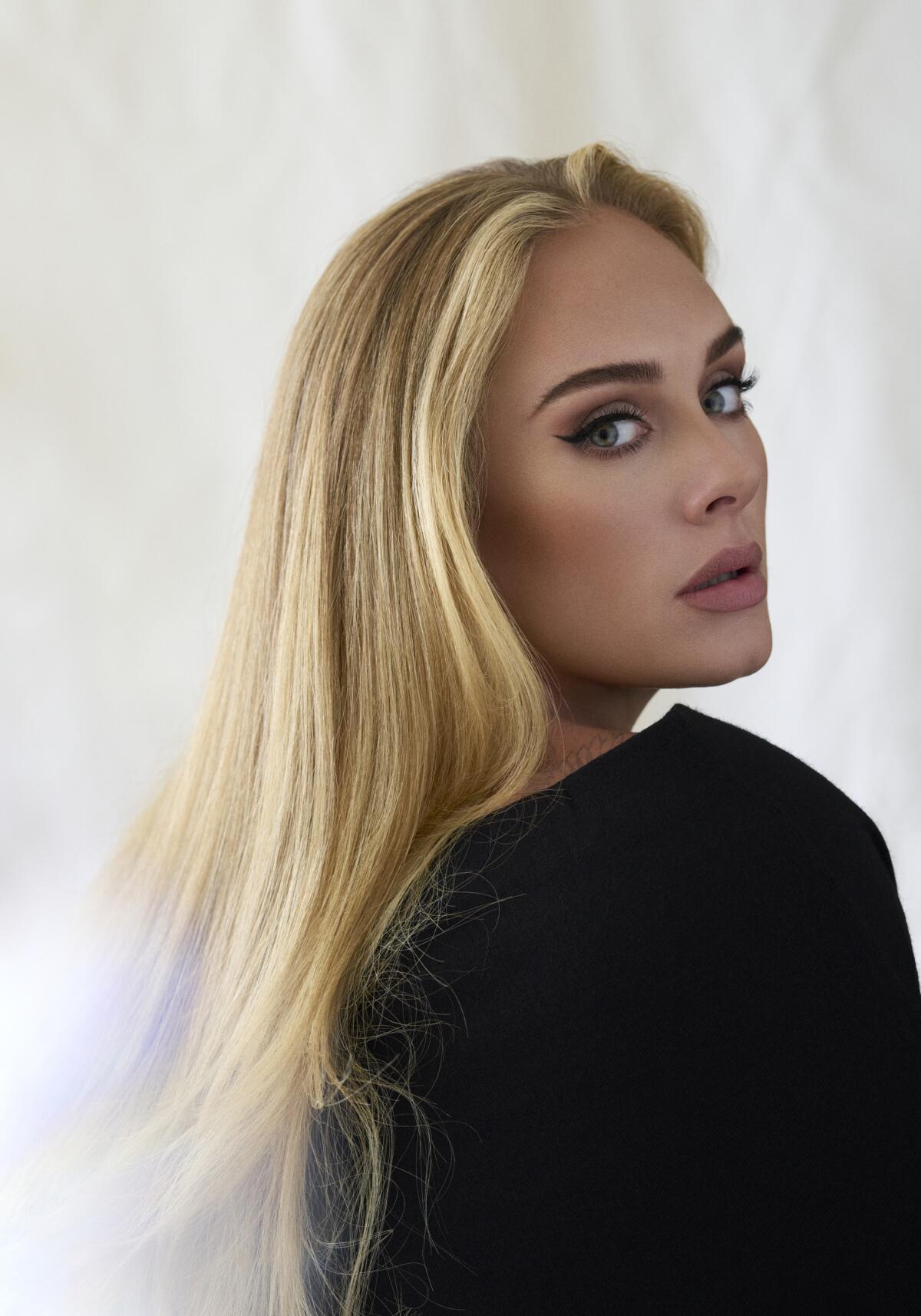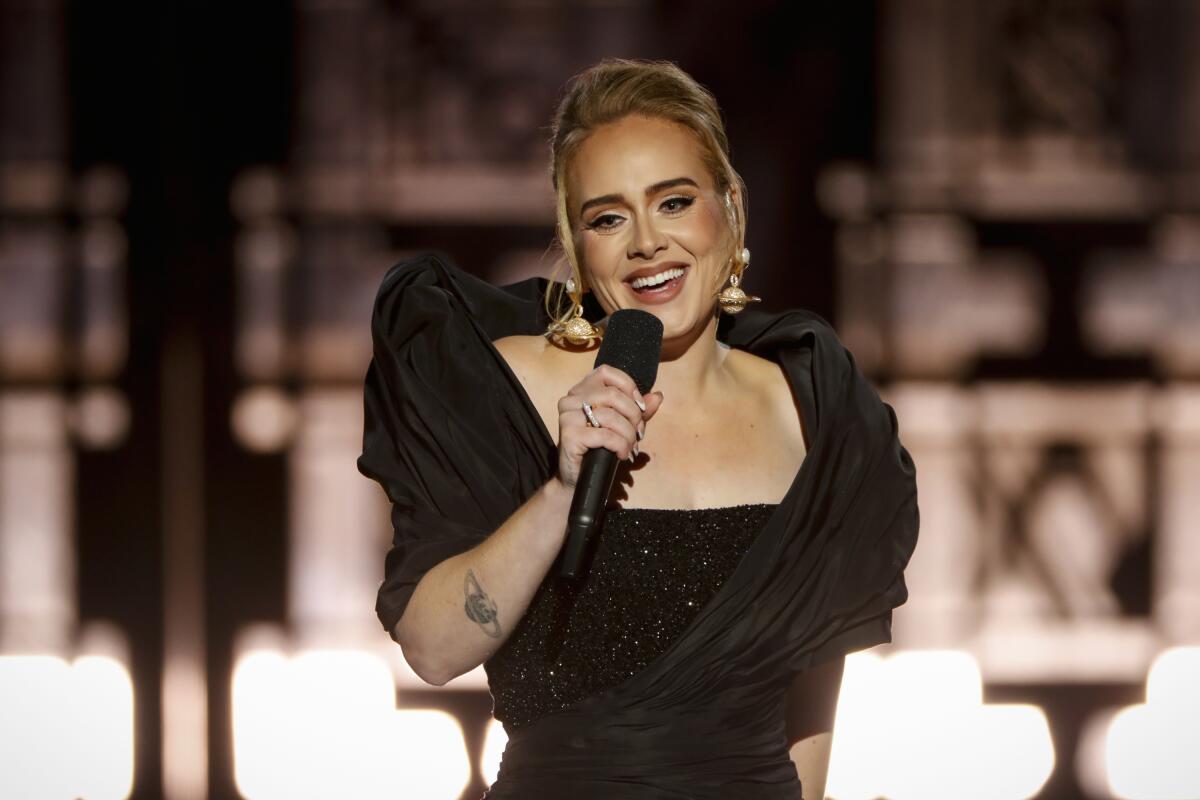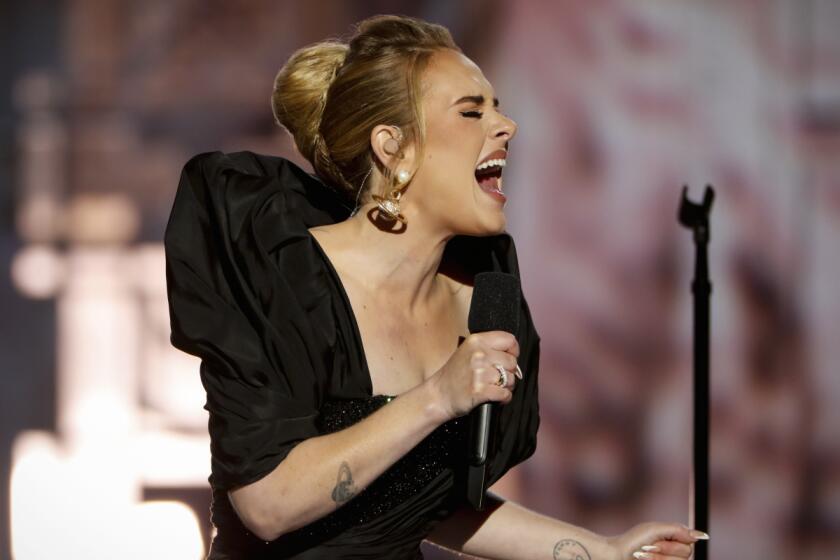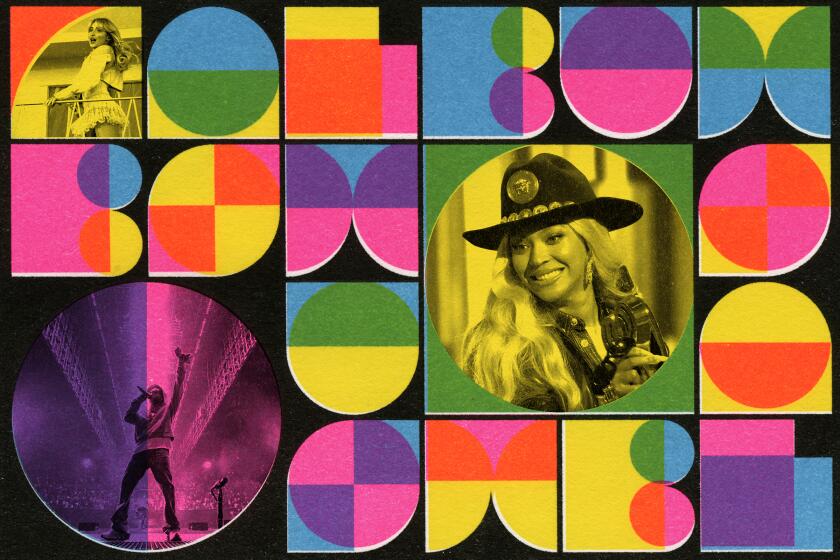Review: There are many heirs to her throne, but Adele is still queen of the ugly-cry ballad

When we talk about Adele’s singing — when we’ve talked about it over the past decade as she became the biggest pop vocalist on the planet — we’ve tended to marvel at her control, her finesse, her mastery of tone.
But in the most moving song on her long-awaited new album, Adele threatens to crash through all that.
It’s almost frightening, this song, in its intensity: A slow, stark, 6 1/2-minute voice-and-piano ballad about learning to let go of trauma, “To Be Loved” — the next-to-last cut on the 12-track “30,” due Friday — climaxes with what can only be described as a howl of pain, Adele’s famous God-given instrument so volcanic that it’s hard to believe everybody in Los Angeles didn’t stop on the day she recorded it and wonder what they just heard.
After the talk-show icon pried royal revelations from Harry and Meghan, Sunday’s sit-down interview/concert special felt frustratingly shallow.
In her televised interview with Oprah Winfrey on Sunday night, which drew more viewers than all the other pop stars combined did for this year’s Grammy Awards, Adele suggested that “To Be Loved” was inspired in part by her late father’s emotional neglect.
Yet the song also feels like the key to understanding “30,” the singer’s fourth studio LP, which addresses her recent divorce from her ex-husband, Simon Konecki, with whom she shares a 9-year-old son.
Yes, there are tunes here about how that relationship unraveled and about the toll it took — the toll it’s taking — on the former couple’s only child. “My Little Love,” a lush soul jam with echoes of classic Isaac Hayes, features voice-memo snippets of the kid asking his mom about her “big feelings”; it’s maybe a bit much, though any parent is sure to crumple at the innocence embedded in that high little voice.

Named, like all of Adele’s albums, after the age at which she began writing it, “30” — the highest-profile in a string of white-woman divorce albums that also includes Kacey Musgraves’ “Star-Crossed” and Carly Pearce’s “29: Written in Stone” — also has songs in which she’s ready to move on from her breakup, most notably “Can I Get It,” which lives up to its frisky title with a boot-scooting acoustic groove à la George Michael’s “Faith.”
“I’m counting on you to put the pieces of me back together,” sings Adele, now 33 and linked romantically to sports agent Rich Paul.
More than gossip about Konecki or her new boyfriend, though, “30” offers deep thoughts on love’s causes and consequences; it uses Adele’s personal experiences — in her marriage but also as a child — to power a kind of philosophical examination into why love fails and what it means for the people involved.
“Woman Like Me” ponders the crucial difference in a relationship between complacency and consistency; “Love Is a Game” laments the seductive ease of self-deception. Even the much-tweeted-about “I Drink Wine,” which seemed to promise a campy millennial’s confession when “30’s” track list was revealed, opens with a high-flown flourish: “How can one become so bounded by choices that somebody else makes?”

Needless to say, Adele’s singing — soaring yet pulpy, gorgeous even at its rawest (as in “To Be Loved”) — gives these musings the blood-and-guts believability her fans crave. There’s some of the brainy energy of Joni Mitchell’s “Blue” here, though it’s filtered through the homey wisdom of Carole King’s “Tapestry.”
The timelessness of “30’s” themes suits Adele, who’s remained steadfast in her musical identity as the record industry has changed dramatically around her. Today’s pop stars jump from style to style — not least her two closest competitors, Drake and Taylor Swift — in a way that reflects the border-free streaming ecosystem that barely existed when Adele put out “25” six years ago. Back then, she still managed to sell millions of CDs when many folks had moved to downloading; we’ll see if she can do it again now that downloading is thoroughly passé.
Still, for all the dismantling of genres happening on the Hot 100, it’s worth remembering that pop listeners never really lose their taste for the kind of music Adele makes. Think of Lewis Capaldi’s chart-topping “Someone You Loved.” Think of Lady Gaga and Bradley Cooper’s “Shallow.” Think of the song that by some measures is 2021’s biggest hit — “Drivers License” by 18-year-old Olivia Rodrigo — or the epic 10-minute version of “All Too Well” that Taylor Swift just performed on “Saturday Night Live.” Until people stop breaking one another’s hearts, we’ll keep needing ugly-cry ballads — and nobody does those better than Adele.
Backed at points by fresh collaborators such as Ludwig Göransson (known for his work with Childish Gambino and on the score of “Black Panther”) and the English producer Inflo, the singer brings a smattering of new sounds into “30.”
“Cry Your Heart Out” rides a crisp Motown-gone-reggae beat, while the jittery avant-folk arrangement in “Woman Like Me” could almost pass for a Radiohead demo. “Oh My God” has bleary backing vocals processed nearly beyond recognition — a surprising choice, perhaps, given Adele’s sing-the-phone-book appeal. (“Hold On” goes more naturalistic, with a credited choir consisting of “Adele’s crazy friends.”) And the album opens and closes with show-tune-style bookends lacquered with twinkly “Willy Wonka” strings.
Most of the time, though, Adele knows that all the drama she needs is right there in her songs. In her life. And in our lives, too.












